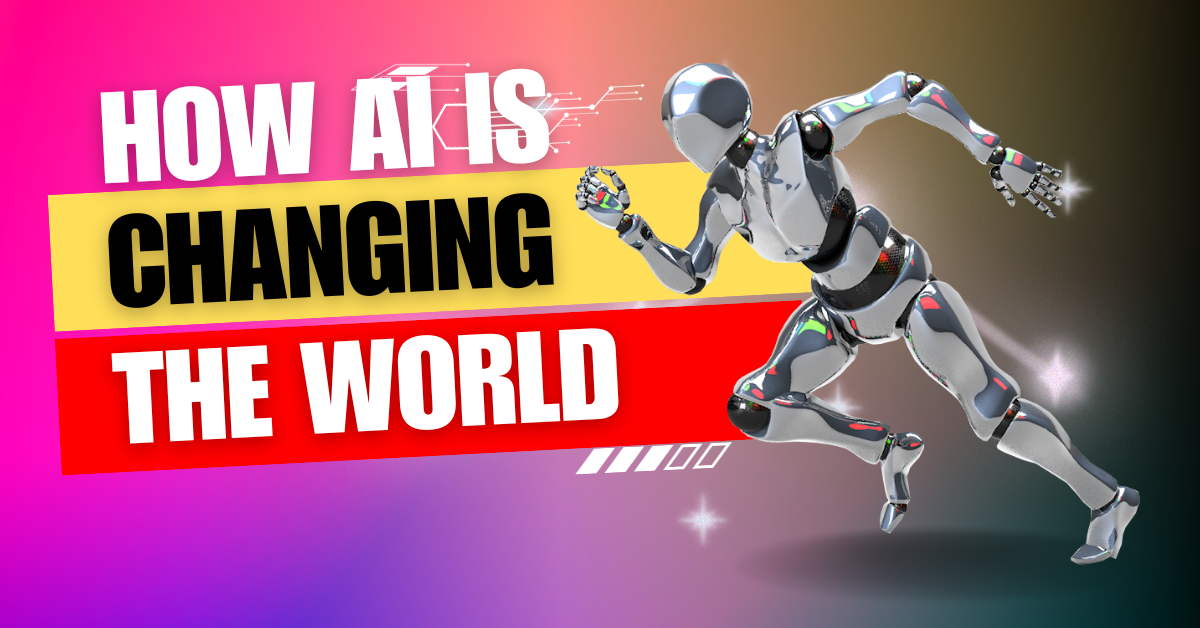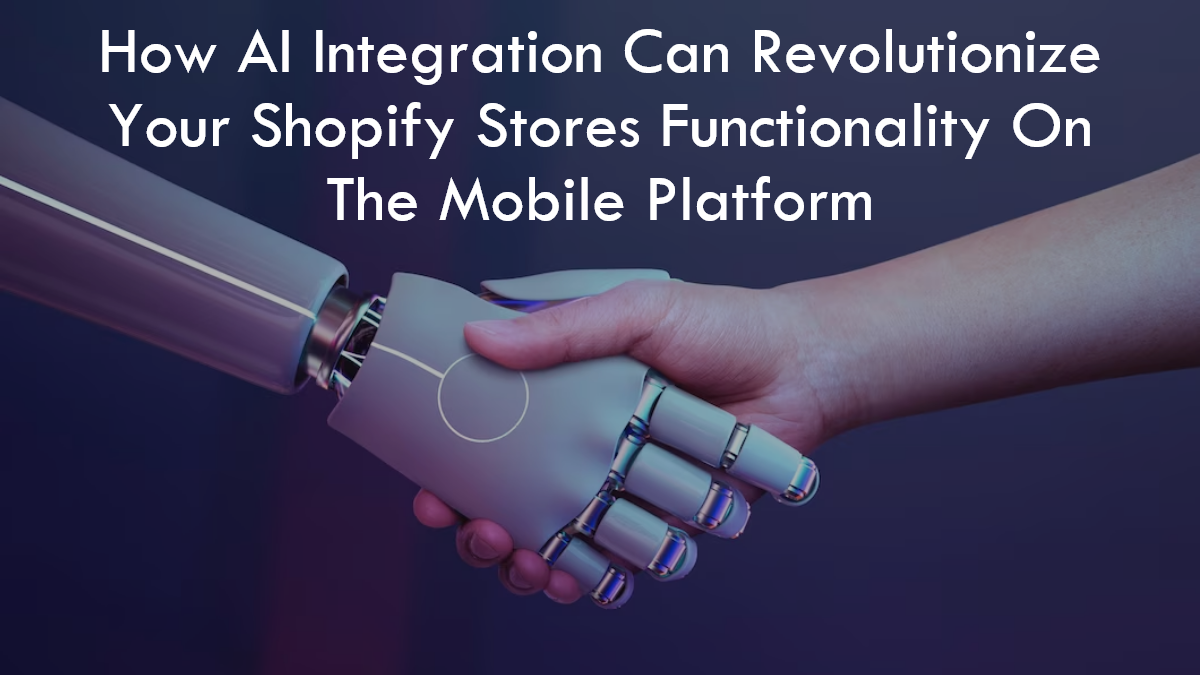Artificial intelligence (AI) has emerged as one of our century’s most transformational technologies. Its rapid evolution and integration into various aspects of our lives have sparked a revolution with far-reaching implications. From healthcare to finance, from transportation to entertainment, AI is changing the world as we know it.
In this blog post, we will explore how AI is changing the world and highlight the role of artificial intelligence engineer courses in shaping this transformation.
AI is Revolutionizing Industries
AI has the potential to revolutionize virtually every industry. In healthcare, AI-powered diagnostic tools can analyze medical images with incredible accuracy, helping doctors make more precise diagnoses. AI-driven drug discovery is accelerating the development of new treatments, potentially saving countless lives. Similarly, in finance, AI algorithms are used for fraud detection, risk assessment, and algorithmic trading, optimizing financial processes and improving security.
AI is Enhancing Customer Experience
The customer experience has been transformed by AI. Chatbots and virtual assistants powered by natural language processing (NLP) have become commonplace in customer support, providing instant responses and resolving queries efficiently. Recommendation systems, driven by AI, have improved content discovery on streaming platforms and personalized shopping experiences, increasing user satisfaction and engagement.
Autonomous Vehicles Are Revolutionizing Transportation
AI is revolutionizing transportation with autonomous vehicles. Autonomous vehicles are growing more intelligent, promising safer and more efficient transportation. Artificial intelligence systems can optimize traffic flow, reducing congestion and pollutants. Additionally, AI is being used in predictive maintenance to improve the reliability of public transportation systems.
AI has enormous potential in education
Artificial intelligence has also made its mark in education. Adaptive learning platforms use AI to personalize the learning experience, helping students of all levels reach their full potential. AI-driven educational tools can identify areas where students need extra help and provide targeted resources, making education more accessible and effective.
AI Is Addressing Climate Change
AI is playing an important role in combating climate change. From optimizing energy consumption in buildings to predicting extreme weather events, AI can help reduce our carbon footprint. Machine learning models can analyze vast datasets to better understand climate patterns and support climate scientists in their research.
The Role of Artificial Intelligence Engineer Courses
The rapid adoption of AI across industries has created a demand for skilled professionals who can develop, implement, and maintain AI systems. Artificial intelligence engineer courses have become essential for individuals seeking to enter this dynamic field. These courses provide a comprehensive understanding of AI technologies, including machine learning, deep learning, computer vision, and natural language processing.
By enrolling in an artificial intelligence engineer course, aspiring AI professionals gain the skills and knowledge needed to drive innovation and contribute to the continued evolution of AI. These courses cover a wide range of topics, from programming languages like Python to the latest AI frameworks and tools. They also emphasize problem-solving and critical thinking, essential skills for AI engineers.
How To Choose The Right Artificial Intelligence Course?
The demand for Artificial Intelligence and Machine Learning professionals is increasing every day. As a result, there is a greater need for machine learning and AI courses that can assist students enter this sector. Naturally, dozens of sUch courses are now available both online and offline. Every course claims to be the best and to assist us in obtaining employment in the sector. So, how can we determine the best professional path for us?
Consider the following factors while selecting an Artificial Intelligence (AI) and machine learning course:
Determine your specific goals and interests within AI. Are you looking to enter AI as a career change, enhance your existing skills, or just explore the field? Your objectives will influence the type of course you should pursue.
Decide between online courses, in-person classes, or a hybrid approach based on your learning style and schedule. Online courses offer flexibility, while in-person classes provide more structure and interaction.
Review the course syllabus and content. Ensure it covers the areas of AI that align with your goals, such as machine learning, deep learning, natural language processing, computer vision, and reinforcement learning.
Check if the course has any prerequisites. Some AI courses may require a background in mathematics, programming, or computer science. Make sure you meet these requirements or are willing to acquire the necessary skills.
Research the credentials and experience of the course instructors and the reputation of the institution offering the course. Experienced instructors and reputable institutions often provide a higher-quality learning experience.
Look for reviews, testimonials, or recommendations from previous students. Their feedback can offer insights into the course’s quality, content, and effectiveness.
Practical experience is crucial in AI. Ensure that the course includes hands-on projects and assignments that allow you to apply what you’ve learned to real-world problems.
Consider whether the course offers a recognized certification upon completion. Certificates from reputable institutions or organizations can boost your credibility in the job market.
Assess the course’s duration and time commitment. Some AI courses are short-term, while others may span several months or even years. Choose one that aligns with your availability and goals.
Compare the cost of the course with your budget. Keep in mind that AI courses can vary widely in price, from free online resources to expensive degree programs. Factor in any additional costs, such as textbooks or software.
Evaluate the level of support and resources offered by the course. This includes access to forums, mentors, online communities, and libraries of AI-related materials.
Some courses provide career services, such as job placement assistance or networking opportunities. If your goal is to transition into an AI career, these services can be valuable.
AI is a rapidly evolving field. Ensure that the course content is up-to-date and relevant to current industry trends and technologies.
Before committing to a paid course, explore free resources and introductory materials to get a feel for the course content and teaching style.
Research the career paths and success stories of alumni who completed the course. This can provide insights into the course’s impact on graduates’ careers.
Ultimately, the right AI course for you depends on your goals, background, learning preferences, and resources. Take your time to research and compare options, and don’t hesitate to reach out to course providers or alumni with questions. With careful consideration, you can choose a course that sets you on the path to becoming a proficient AI professional.
Final Words
In the end, we can conclude that AI is indeed changing the world in profound ways. Its impact on industries, customer experiences, transportation, education, and environmental efforts is undeniable. As AI continues to evolve, the demand for skilled professionals in this field will only grow. Artificial intelligence engineer courses play a pivotal role in preparing individuals to harness the transformative power of AI, ensuring a brighter and more innovative future for all.
The world is at the cusp of an AI revolution, and those with the knowledge and expertise to navigate this exciting landscape will be at the forefront of shaping the future. So, whether you’re a student looking to embark on a career in AI or a professional seeking to upskill, consider the transformative potential of AI and the opportunities offered by artificial intelligence engineer courses. The world of AI is changing, and it’s a world filled with endless possibilities.





